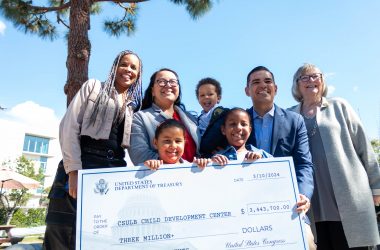After spending roughly 30 years in storage, video footage of a woman born without a tongue is currently being studied and used to improve tongue and jaw reconstruction in patients with cancer.
Betty McMicken, assistant professor of communicative disorders at Cal State Long Beach, is studying the information she gathered in the mid-80s while examining a 16-year-old girl, referred to as “Carol” for patient privacy.
Carol was born without a tongue (congenital aglossia) and learned to use other muscles and structures of her jaw, lips, throat, base of tongue and pseudo tongue to speak intelligibly. Carol’s mother took her to see McMicken to discuss performing cosmetic surgery to move her small jaw forward to improve her appearance.
After completing a thorough examination of Carol’s speech, including high-quality audio and video tapes of Carol speaking, McMicken and a team of head and neck physicians studied the tapes and concluded that cosmetic surgery would impair the muscles Carol had learned to use to speak and swallow properly.
Carol and her family decided against the procedure, and further study was put on hold.
McMicken rediscovered the material a couple of years ago after showing a cineradiographic study of a normal speaker to one of her classes. She began to research other cases of congenital aglossia.
“It’s almost like finding treasure that you had buried and forgotten about,” McMicken said about the data she resurfaced.
Although the tapes were stored for many years, Carol’s incredible speech and jaw movement revolutionized reconstructive surgery. This has helped improve surgery for patients who had their tongue, partial tongue, jaw or partial jaw removed due to cancer.
“In the 1980s the response was revolutionary; [Carol] basically changed the way we reconstructed patients,” said McMicken. “What we learned from Carol helped us to learn how we can reconstruct these individuals and how to mobilize a reconstructed structure to have clearer speech and to help them swallow.”
McMicken is working with a research team including Khalil Iskarous at the Haskins Laboratories at Yale University, which specializes in the science of speech and language, and Shelley Von Berg, an authority on craniofacial anomalies at Cal State Chico.
Together, the team will write four papers in the next five or six years. The papers will detail the perceptual, acoustic and physiological aspects of how she produces intelligible speech. The first paper will focus on vowels, the second on single words, the third on connected speech and the fourth on moving x-rays of her speaking.
“No one else in the world has what I have,” McMicken said about her data on Carol. “[Carol] continues to teach me every single time I look at the data.”
Isolated congenital aglossia is a very rare case, with only 8 cases reported since 1718, according to McMicken.
McMicken is a nationally recognized speech therapist. She co-founded Newport Language Speech Center in Orange County and worked at Cal State Los Angeles as a professor and chair of the Communicative Disorders Department.
Disclaimer: The Daily 49er is not responsible for Postings made on www.daily49er.wpengine.com. Persons commenting are solely responsible for Postings made on this website. Persons commenting agree to the Terms of Use of the website. If Postings do not abide by the Rules of Conduct or Posting Regulations as listed in the Postings Policy, the Daily 49er has all rights to delete Postings as it deems necessary. The Daily 49er strongly advises individuals to not abuse their First Amendment rights, and to avoid language suggestive of hate speech. This site also encourages users to make Postings relevant to the article or other Postings.



